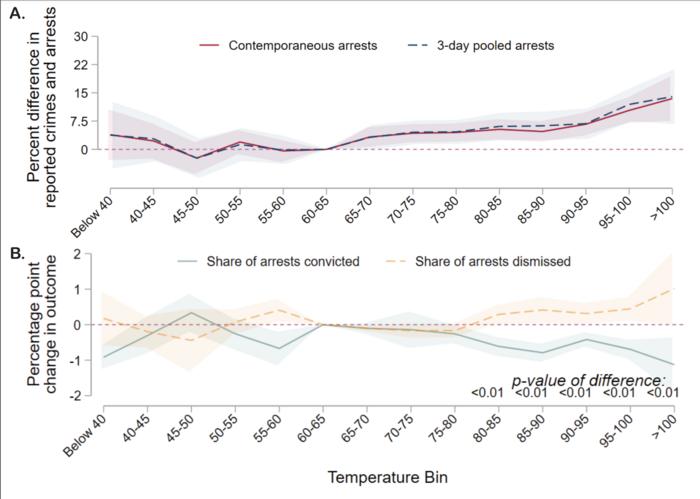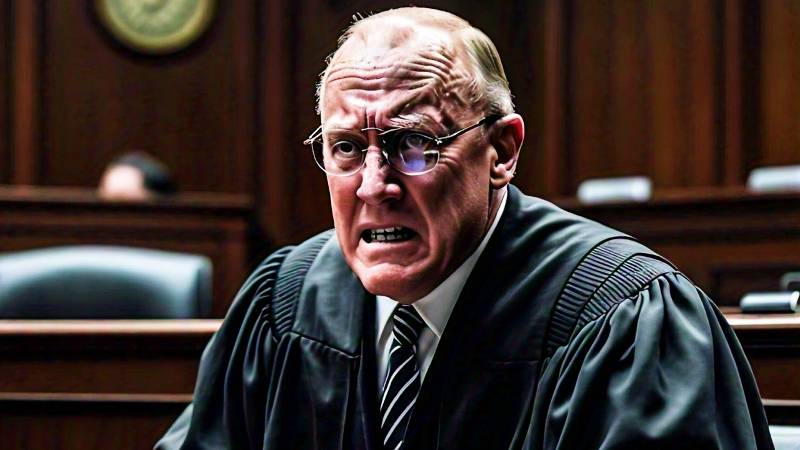In the scorching summer heat of Texas, when the mercury climbs to triple digits and the air shimmers like a mirage over the endless highways, strange things happen to those tasked with upholding law and order.
The very weather itself, it seems, meddles with the minds of police officers making arrests and judges rendering verdicts and sentences. This is the provocative finding of a new study by economists A. Patrick Behrer and Valentin Bolotnyy, who analyzed a staggering 10 million arrest records in the Lone Star State from 2010 to 2017.
Fewer Arrests, More Dismissals on Hottest Days
The data tells a curious tale. On the most sweltering days, police made fewer arrests per reported crime compared to milder days. Yet a higher proportion of these hot-weather arrests were later tossed out in court – a sign, the researchers suggest, that many of them may have been unjustified or legally shaky to begin with. It’s as if the heat itself were acting on the decision-making faculties of the officers, nudging them to make more questionable arrests.

Judges Issue Harsher Sentences in the Heat
Step inside a Texas courthouse on a blistering day, and the story takes another strange twist. The same judges who were more apt to dismiss flimsy arrests made in the heat were also more likely to throw the book at defendants they did convict. Prison sentences stretched longer and fines climbed higher, on average, when the gavel came down on hotter-than-usual days. Heat, it appears, not only warps the calculus of police on the street – it also pushes judges toward harsher punishments in the courtroom.
The implications of the study are both fascinating and unsettling, suggesting that the very weather can become an invisible thumb on the scales of justice. In a world of climate change, where searing heat waves are predicted to become ever more frequent, this effect could grow in places like Texas. The researchers suggest potential remedies – better air conditioning, increased staffing, a culture of teamwork as a hedge against individual errors in judgment – but the challenge is clear. In the unrelenting heat of Texas, those sworn to protect and serve, to uphold the law with fairness and reason, must now beware that the sun itself can be their adversary.


